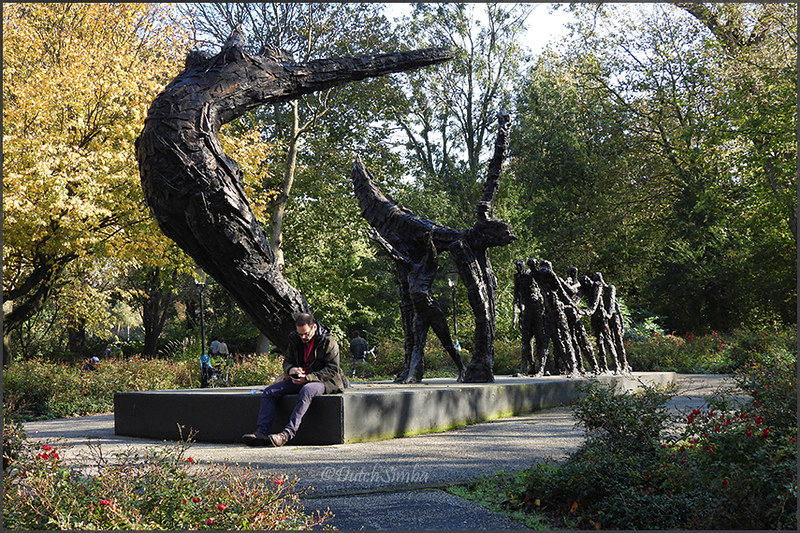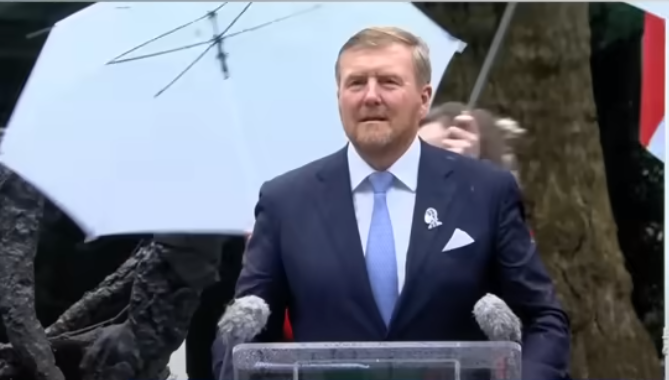
The Dutch call it de Gouden Eeuw (the Golden Century), a period in the history of the Netherlands – then known as the Republic of the Seven United Netherlands — roughly spanning the era from 1588 to 1672. It was truly a golden era for the Dutch as the Dutch Republic — one of the smallest countries in Europe — became one of the most powerful and wealthiest nations in the world during that “century.”
More broadly and perhaps spanning a longer period, this era is also referred to as the Dutch Golden Age.
It was a period when the tiny Dutch republic amassed one of the most powerful navies, built the largest mercantile fleet in the world and became the leading financial, trade and economic center in Europe. The Dutch scientific, industrial, literary, philosophical and artistic achievements were also unrivaled during this period
Employing such prowess and taking advantage of its strategic location, the Dutch Republic became a vast, global colonial empire, dominating world trade, using its naval power to control shipping routes. The establishment of, first, the mammoth Verenigde Oostindische Compagnie or Dutch East India (Trading) Company, and, later, the West India (Trading) Company with its quasi-military function, not only provided a lucrative source of income for the Dutch but also enabled the Republic to establish numerous trading posts and vast colonies in Asia, Southern Africa and the Americas.
However, the trading companies — in particular, the West India Company — did more than trade in sugar and spices.
As was the case with other countries, the transatlantic slave trade – “the largest long-distance forced movement of people in history” — became an important source of income for the Dutch Republic during its Golden Age.
It is estimated that in the 17th and 18th centuries, Dutch ships transported 550,000 to 600,000 Africans to sugar, cotton, cacao and coffee plantations in the Dutch West Indies and in South America, where generations of people were forced, or were born, into slavery serving Dutch plantation owners.
The Dutch East India Company also played a role – albeit on a smaller yet equally sordid scale — in Asia where generations of people were forced, or were born, into slavery serving Dutch plantation owners.
In 1814, the Netherlands signed an international agreement to stop slave trade and, in 1863, it was one of the last countries to abolish slavery in its colonies. It would be another 10 years, however, before enslaved people on some of the plantations would be fully free because of a 10-year transition stipulation designed to mitigate the “loss caused by this measure” to the plantation owners.
It would be another 150 years from this latter date, 1873, that the Dutch government — at the highest level — would formally apologize for this dark, painful chapter in Dutch history.
That formal apology came from none other than Dutch King Willem-Alexander on Saturday, July 1, 2023.
Speaking at the national slavery monument in Amsterdam’s Oosterpark, commemorating the abolition of slavery in Suriname and Caribbean colonies, King Willem-Alexander offered a heartfelt apology for the Netherlands’ role in the slave trade and, more broadly, for his country’s slavery in its former colonies, “a rare direct apology for a historical injustice by a sitting European monarch.”

Acknowledging Prime Minister Mark Rutte’s apology six months earlier for the Dutch role in slavery and slave trade, and after reflecting on “the horrific legacy of slavery” that still remains today and “its effects [that] can still be felt in racism in our society,” the King said, “Today, I stand before you. Today, as your King and as a member of the government, I make this apology myself. And I feel the weight of the words in my heart and my soul.”
The King then added, “But for me, there is another personal dimension,” admitting that while slavery and the slave trade are recognized as a crime against humanity, “the Stadholders [governors] and Kings of the House of Orange-Nassau did nothing to stop it.”
In effect, King Willem-Alexander was also apologizing on behalf of his ancestors, like him members of the House of Orange-Nassau.
Using the native language of the former colony of Suriname, the King proclaimed:
Ten kon drai
Times have changedDen keti koti, brada, sisa
The chains are broken, brother, sisterTen kon drai
Times have changed
Den keti koti, fu tru!
The chains are broken, it’s true!
CODA:
King Willem-Alexander also spoke about an independent study he has commissioned to “shed more light on the precise role played by the House of Orange-Nassau in [the] country’s colonial past and the history of slavery.”
All part of a recent effort by the Dutch government and Dutch people to examine and reflect upon this painful chapter in Dutch history. It includes a “Slavery Memorial Year,” that will run from 1 July 2023 to 1 July 2024.
















